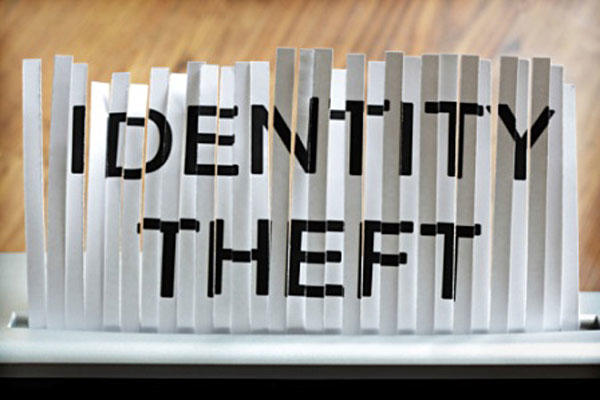Committing time to improve your credit score, pay down debt and get on a financially stable track is important. However, your hard work can unravel if you become a victim of identity theft. Every day you share personal information about yourself with others. It's so routine, you might not even know you're doing it—charging tickets to a concert, buying things online and applying for credit are all actions that could lead to identity theft if your information falls into the wrong hands.
Identity theft generally occurs when someone steals personal information, such as your Social Security number, birth date or mother's maiden name. Thieves can use this information to do everything from establishing a phone in your name to opening new bank accounts to getting a driver's license or other form of ID in your name—all without your knowledge.
Many people don't know they've been victimized until a collection agency comes knocking on their door. Don't let that happen to you. Identity theft is a growing problem, but there are steps you can take to help prevent it.
Take These Steps to Help Prevent Identity Theft
- Never give out personal information over the phone, on the Internet or through the mail unless you initiate the transaction or know who you're dealing with.
- Before you reveal any personal information, find out how it will be used and shared with others.
- Ensure the passwords to your credit card, bank, phone and all other online accounts are not easily available and cannot easily be guessed. Avoid using obvious information such as your birth date, digits in your Social Security number or your mother's maiden name.
- Keep items with personal information in a safe place. Tear up or shred all unnecessary papers containing Social Security numbers, account numbers and birthdates before discarding them so "dumpster divers" can't retrieve them.
- Make sure the information you're entering when shopping online is secure. Look for https:// or a "lock" icon in the website address.
- Protect your mail. Get incoming mail in a locked mailbox or slot. Take outgoing mail to a postal mailbox or the post office. If your mail suddenly stops, go to the post office. Thieves sometimes submit change of address forms to divert mail to their address.
- Check your bank and credit card statements promptly. If you see any problems, report them immediately.
- Order a copy of your credit report annually from the three major credit bureaus: Equifax, Experian and TransUnion. Review each report for accuracy and make sure it contains transactions only you have authorized. For more information on credit reports, read the Improve Your Credit Score Action Plan.
- Tell credit companies you do not want to receive preapproved credit offers by calling the Credit Reporting Industry Pre-Screening Opt-Out Number at (888) 567-8688 or visit www.optoutprescreen.com.
- If you are about to deploy, place an "active duty alert" on your credit reports to protect your identity while you are away.
There are government agencies working to prevent this type of fraud, such as the Federal Trade Commission (FTC), the Office of the State Attorney General or a local Office of Consumer Affairs. However, if you are pressing charges in a case of identity theft, you are responsible for providing evidence of deception or fraud, not a government agency.
Take These Steps to Solve Identity Theft
- Contact your banks and creditors by phone and in writing, and report the crime. You may be advised to close some or all of your accounts. If not, immediately change passwords and PIN codes.
- Call the three major credit bureaus, and ask them to put a fraud alert on your credit file. Order copies of your credit reports, and check for fraudulent activity. Check monthly statements for fraudulent transactions.
- Contact your financial institutions, and ask them to flag your accounts. Instruct them to contact you immediately if there is unusual activity on your account.
- Record the names and phone numbers of people with whom you discuss your case and retain all original reports and documents.
- If the crime involved the U.S. mail, report it to the U.S. Postal Inspection Service.
- File your complaint online with the FTC, or call their identity theft hotline toll-free at (877) ID-THEFT (that's (877) 438-4338). The FTC has counselors to assist victims with resolving problems that can result from this crime.
The FTC website offers more information about preventing identity theft and what to do if you think your identity has been stolen. Visit www.ftc.gov/idtheft.
When it comes to your finances, you can never be too prepared. Let's check out the Financial Action Plans and Worksheets page for more information.













